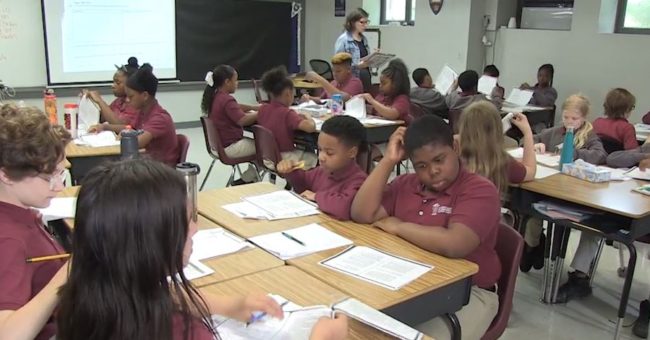08.12.19A Lesson in Sustained Focus: Rachel Harley’s English Class

Earlier this week I wrote about how important the ability to sustain focus is to almost every worthy cognitive endeavor, and how it is harder and harder to achieve that in a society that fractures our concentration and fragments our time. As I discussed in this review, your average time on task as an adult is a few minutes at a time.
A few days later a friend emailed:
Over the past couple of years, I’ve had this nagging feeling that I am developing ADHD, because of a lessening ability to sustain intellectual tasks—grading, writing plans, reading the newspaper. I was wondering whether it was a factor of the aging process, of not getting enough sleep, of having too many tasks on a plate and not enough time to complete them thoroughly.
It’s amazing how many people say something similar. “I think my brain is changing.” “I can’t read what (or like) I used to any more.” For the most part it’s true. Our habits and probably our brains ARE changing as a result of our relationship with technology- even if most people are unaware of it.
Are schools alert to this problem? Do they take steps to address it. In many ways, they probably make it worse, thought there are things they could do…
All of which I was thinking about when I arrived at one of our weekly video meetings on Friday. We were watching footage from Rachel Harley’s English class at Nashville Classical Charter School, where Rachel and her fifth graders were reading Laurie Halse Anderson’s Chains.
“This one’s on the long side. Seven minutes,” Rob advised before he screened it. Usually it’s hard to sustain focus on a clip that’s more than three minutes or so but this one-flew by. It had what Mihaly Csikszentmihalyi calls flow- a highly focused mental state conducive to productivity.
It struck me that in a world of fractured reading experiences- everyone reading their own book; kids rarely reading as a community in class- one of the things that’s lost is what’s so powerful about Rachel’s lesson. The way the engaging task of reading together socializes states of sustained focus. They read together. They annotate. They discuss. She reads to them. They write. They read and they reflect and they enjoy it. This sustained meditative focus is one of the most powerful things we as educators can give young people.
Here’s the video from Rachel’s class in its entirety.
NC-09HarleyReadingCycleHQ from TLAC Blog on Vimeo.
There are a hundred things to notice about it but one of the most important is the culture- how much her students relish reading aloud; the pleasure they take in using words, and their ability to do engage in and appreciate the straightforward tasks of reading and reflecting for sustained periods with engagement and enjoyment- and silly distractions and nary a screen in sight.